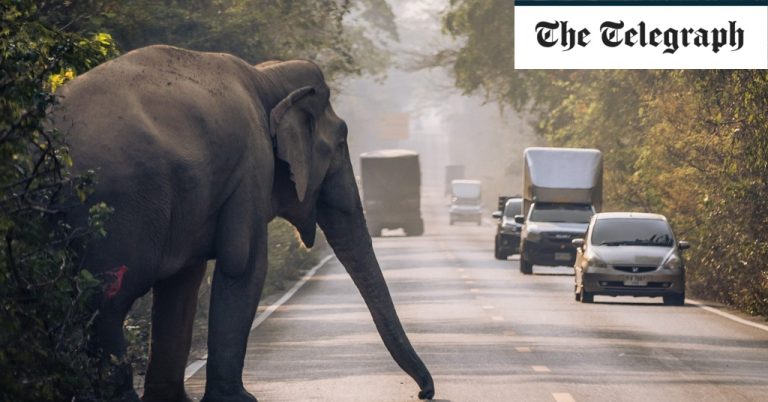Yet the cost of these ‘elephant buffets’ is acute for farmers. And in the villages to the north of Khao Ang Rue Nai Wildlife Preserve in Chachoengsao, almost everyone seems to have paid a price.
“Friends have seen their 10 rai [four acre] field of rice destroyed within an hour,” says Ms Wannakham, adding that the animals are most active at night. “Last year I lost 30 rai [12 acres] of jackfruit, about 20,000kg. It was worth 200,000 baht [£4,400]. My income for that year just vanished.”
With limited compensation available from the government, many here are instead pushed into debt to recover.
Since her husband’s sudden death, Ms Pakdee and her two sons have taken out close to £22,000 of loans to help them recover after elephants ate their cassava crop. Now they farm eucalyptus for paper instead – it’s less profitable, but also less edible. Still, the animals are frequent visitors to the coconut, mango, jackfruit and bamboo trees in the family’s garden.
“I often see them from my window,” Ms Pakdee says, peeking through shutters in her bedroom. Above the door frame hangs a traditional, silky orange ‘spirit cloth’ – she hopes it will not only keep spectres away, but also the elephants.
Protect yourself and your family by learning more about Global Health Security
